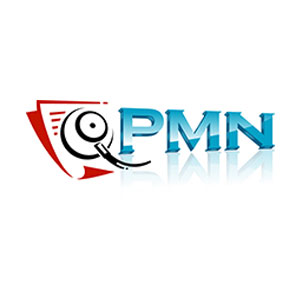
These terms might seem interchangeable at first glance, but they actually have fairly distinct processes that’ll cause your practice a lot of unnecessary bother if you don’t get it right – so, let’s break down the disparities between the two in this article.
Category
Business
Physician Bill vs Hospital Bill – What’s The Difference
Physician Bill vs
Hospital Bill –
What’s The
Difference?
• These terms might seem interchangeable at first glance, but
they actually have fairly distinct processes that’ll cause your
practice a lot of unnecessary bother if you don’t get it right—so,
let’s break down the disparities between the two in this article.
Physician Billing
• When we talk about physician billing, we’re mainly referring to
the billing process for all the medical services rendered by
healthcare physician providers like yourself, so this tends to
cover a pretty broad spectrum that ranges from simple things
like routine check-ups to more intricate surgical procedures.
• In essence, this means translating the diagnosis, procedures, and
even treatments you’ve provided into universal medical codes
that insurance companies recognize—not only so you’re
reimbursed faster and without error but also so that you stay
compliant with all the relevant healthcare regulations.
Hospital Billing
• On the other hand, institutional (or hospital billing) revolves
around the charges your patients will incur during their stay
or visit to your medical facility, and this covers services that
go way beyond just the professional expertise of your
physicians, including, but not limited to, the following:
• Room accommodation
• Medical equipment usage
• Laboratory services
• Medications
• Other kinds of ancillary services your practice provides
• So, unlike physician billing, which primarily deals with
professional billing, hospital billing involves both
professional billing and institutional billing.
• For clarity, though, try to think of professional billing
as handling services rendered by your healthcare
professionals and hospital billing more for facility-
related charges (which ultimately makes hospital
billing inherently a bit more complex since it’s so
multi-faceted).
Why Understanding the Difference Matters
• It might sound like we’re making too much of a big
deal regarding the importance of separating these
two terms, but generally speaking, knowing the
difference between these is probably one of the
easier ways you stay financially stable as a small
practice, given the implications of mixing them up.
• You don’t need us to remind you that small medical
practices like yourselves typically work on way tighter
budgets—not to mention fewer resources—than
your larger counterparts and why they might be able
to sometimes get away with delayed payments (or
even compliance issues) sometimes because their
revenue cycle management is already flourishing;
you don’t have this same kind of luxury.
• As such, any inefficient billing practices that are
naturally going to follow by confusing hospital billing
and physician billing—whether it’s not knowing what
codes you should be using or even the
services/resources that are involved—are going to
cause some problems for your practice’s bottom line.
Partnering with Professional
Medical Billing and Coding Services
• Now, as smaller medical practices, chances are
your specialties don’t exactly lie in handling all these
particular nuances between the two kinds of billing
practices, so this is naturally going to make you a lot more
prone to errors.
• Because of this—and the fact that you generally just might
not have enough staff to handle it—it’s not uncommon for
practices like yours to utilize EHR software and other sorts
of billing software to handle it for them, but this kind of
thing can be notoriously expensive and time-consuming
since you’ve now got to teach all your staff how to use it
(never mind running into issues with maintenance that can
halt your practices activities when it’s out of use).
• If it’s not entirely clear yet, the point is that these aren’t
sustainable tools for small practices to rely on—what you
really need is a dedicated medical billing and coding
partner who’s actually got experience working directly
with small practices (and all the specific challenges they
face) rather than large ones, such as PMN.
• The medical billers and coders over at PMN bring over 20+
years of expertise to your practice and handle hospital and
physician billing services in a range of different niches—
from family medicine to something a bit more specialized
like gastroenterology—so regardless of what task it is, you
won’t need to worry about claim denials or delays in
general; they’ll always get it right the first time so you’re
reimbursed quickly.

Comments